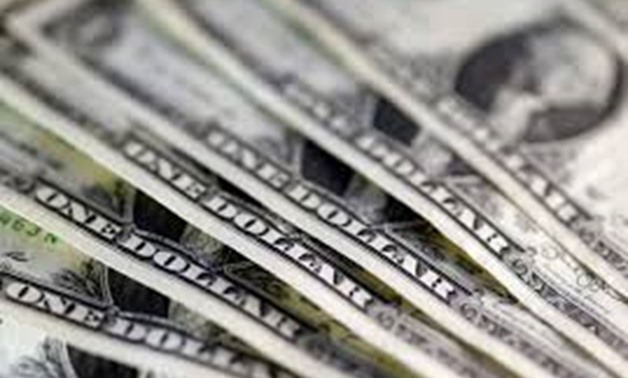
U.S. dollar notes are seen in this November 7, 2016 picture illustration. REUTERS/Dado Ruvic/Illustration/File Photo
TOKYO - 4 September 2018: The dollar firmed on Tuesday as investors bid up safe haven assets amid tensions around global trade and strains in emerging market currencies, while the Australian dollar pared losses after Australia’s central bank kept interest rates on hold.
Fears of a hit to global growth from U.S. President Donald Trump’s ‘America First’ protectionist policies have kept markets in a state of heightened anxiety for much of this year.
On Saturday, Trump said there was no need to keep Canada in the North American Free Trade Agreement and warned Congress not to meddle with the talks to revamp NAFTA or he would terminate the trilateral trade pact.
“It seems that the dollar, helped by rising interest rates, and the yen, the typical haven currencies, are supported by the confusion in the rest of the world,” said Masafumi Yamamoto, chief currency strategist at Mizuho Securities.
As of 0403 GMT, the dollar index against a basket of six currencies was 0.1 percent higher at 95.231, nearing its highest level since Aug. 27.
The dollar’s status as the world’s reserve currency tends to attract safe haven bids in times of market turmoil and political tensions.
The Australian dollar rose 0.06 percent to $0.7216, as the Reserve Bank of Australia decided on Tuesday to keep its cash rate at 1.5 percent, as widely expected.
The Aussie retraced earlier losses of about 0.3 percent shortly after the rate decision, moving off a 20-month low of $0.71655 touched during the previous session.
The euro was down 0.15 percent at $1.1601. Data released on Monday showed euro zone manufacturing growth slowing to a near two-year low in August as optimism dwindled due to the lingering threat of a global trade war.
Similar surveys in Asia showed the region’s key exporting nations coming under strain from the escalating global trade frictions.
Also on Monday, Argentine President Mauricio Macri announced new taxes on exports and steep cuts to government spending in what he termed “emergency” measures to balance next year’s budget, underlining the turbulence gripping some emerging markets.
Currencies including the Argentine peso, Turkish lira, South African rand, Brazilian real, Indonesian rupiah and Indian rupee have suffered in recent weeks.
Kumiko Ishikawa, senior analyst at Sony Financial Holdings, said anxiety has come to the fore as a result of multiple issues, including the China-U.S. trade war and uncertainty about how the NAFTA talks will play out.
“If things are like that, there are no moves to sell the yen to take risk,” she said, adding that the yen rather than emerging market currencies will be bought “when the mood worsens”.
The yen rose 0.04 percent to 111.07 yen, giving up some gains after touching as high as 110.90 during morning trade. It was also higher against the euro, gaining about one-fifth of a percent to 128.84 yen as of 0406 GMT.


Comments
Leave a Comment